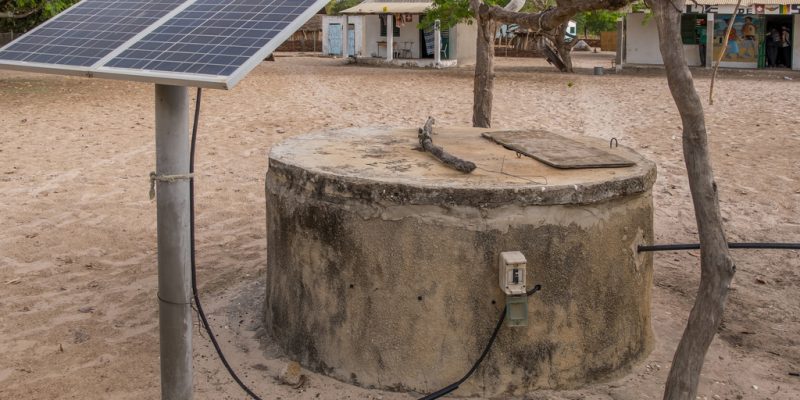Three civil society organisations (CSOs) in Burkina Faso decided to conduct an environmental analysis of renewable energy (RE) in Burkina Faso. At the end of this study, the CSOs advocate for "improving the access of populations to quality renewable energy products and services". The work of CSOs has recently been validated by the Netherlands Development Organisation in Burkina Faso (SNV-BF) and the Voice for Change Programme (V4CP).
The study on “the willingness and financial capacity of populations in rural and peri-urban areas to afford quality renewable energy services and products” was released on 19 June 2020 in Koudougou, central Burkina Faso. This was during a validation workshop organised by the Netherlands Development Organisation in Burkina Faso (SNV-BF) and the Voice for Change Programme (V4CP). The research was carried out by three civil society organizations (CSOs) in Burkina Faso, namely the Association de la gestion des ressources naturelles et de la faune de la Comoé-Leraba (Ageref/CL), the Centre écologique Albert – Schweitzer (CEAS Burkina) and the Catholic Organization for Development and Solidarity (Ocades). These CSOs work in partnership with the Netherlands Development Organization in Burkina Faso (SNV-BF) and the International Food Policy Research Institute (IFPRI). The studies were carried out as part of the Voice for Change Partnership project, which aims to strengthen the capacity of CSOs in advocacy and lobbying in Burkina Faso.
The scientific document that was validated follows an analysis of the environment related to renewable energy in Burkina Faso, as well as four national studies commissioned by SNV and used by CSOs to support their advocacy for improved access to electricity for the country’s inhabitants. “These studies will allow all actors in the energy sector to see what kind of solution could be tested in rural areas, which corresponds to their willingness and capacity. The investigations started in the last quarter of 2019,” says Honoré Bonkoungou, deputy project leader of ECED-Mouhoum.
Training in renewable energy professions
The surveys focused on the state of play of the training offer in renewable energies, intermediate level training (CQB, CQP, BQP, CAP, BEP, BAC) in renewable energies, the relationship between training and the quality of the service offered in renewable energies and employment opportunities in the renewable energies sector, especially in rural areas. CSOs benefited from technical and financial support from the project “Energy and Sustainable Economic Growth in the Mouhoum Loop (ECED-Mouhoum)”, implemented by the Canadian Executing Agency Cowater International.
At the end of the investigations, according to the CSO report, it appears that “in the market for renewable energy goods and services in Burkina Faso, the low level of knowledge of equipment by households and technicians means that low quality products and services are the most in demand, as they are generally low priced”. This is an aberration according to CSOs, who state in their study that “it is precisely the low quality products that are the most expensive, given that they have a speed of renewal and an unnecessarily higher maintenance cost”.
Promote the use of renewable energy
Another conclusion, the study revealed that barely 14.37% of the samples analysed in Burkina Faso use renewable energy services, 6.62% use energy such as improved stoves, 4.32% use solar kits and lanterns for lighting and 1.18% use equipment with productive application (solar motor pump, solar freezer/fridge, solar water pumping). In addition, 37.10 respondents say they are willing to acquire solar lamps and kits (for lighting and for recharging telephones) and 2.48 per cent state their intention to acquire equipment for productive use (solar incubator, motor pump, biodigesters, etc.).
The CSO analysis also learned that Burkina Faso has at least 25% of very vulnerable people who would not have access to renewable energy and would not wish to acquire related equipment.
According to the CSO approach, the results of the study on “the willingness and financial capacity of populations in rural and peri-urban areas to afford quality renewable energy services and products” will be used to convince the government of Burkina Faso, local authorities, the private sector and investors of the need to promote quality renewable energy equipment and services in urban and rural areas in Burkina Faso.
“As far as the regularization of solar equipment is concerned, the problem is that the renewable energy sector was liberalized before the creation of the National Agency for Renewable Energy (Aneree). There are certainly difficulties, but we are catching up with them. We are also going to encourage people to move towards renewable energies, because it is a sector with a future. What’s more, we have an invaluable sunshine potential in Burkina Faso,” says Djourmité Nestor Noufé de l’Aneree.
Inès Magoum






